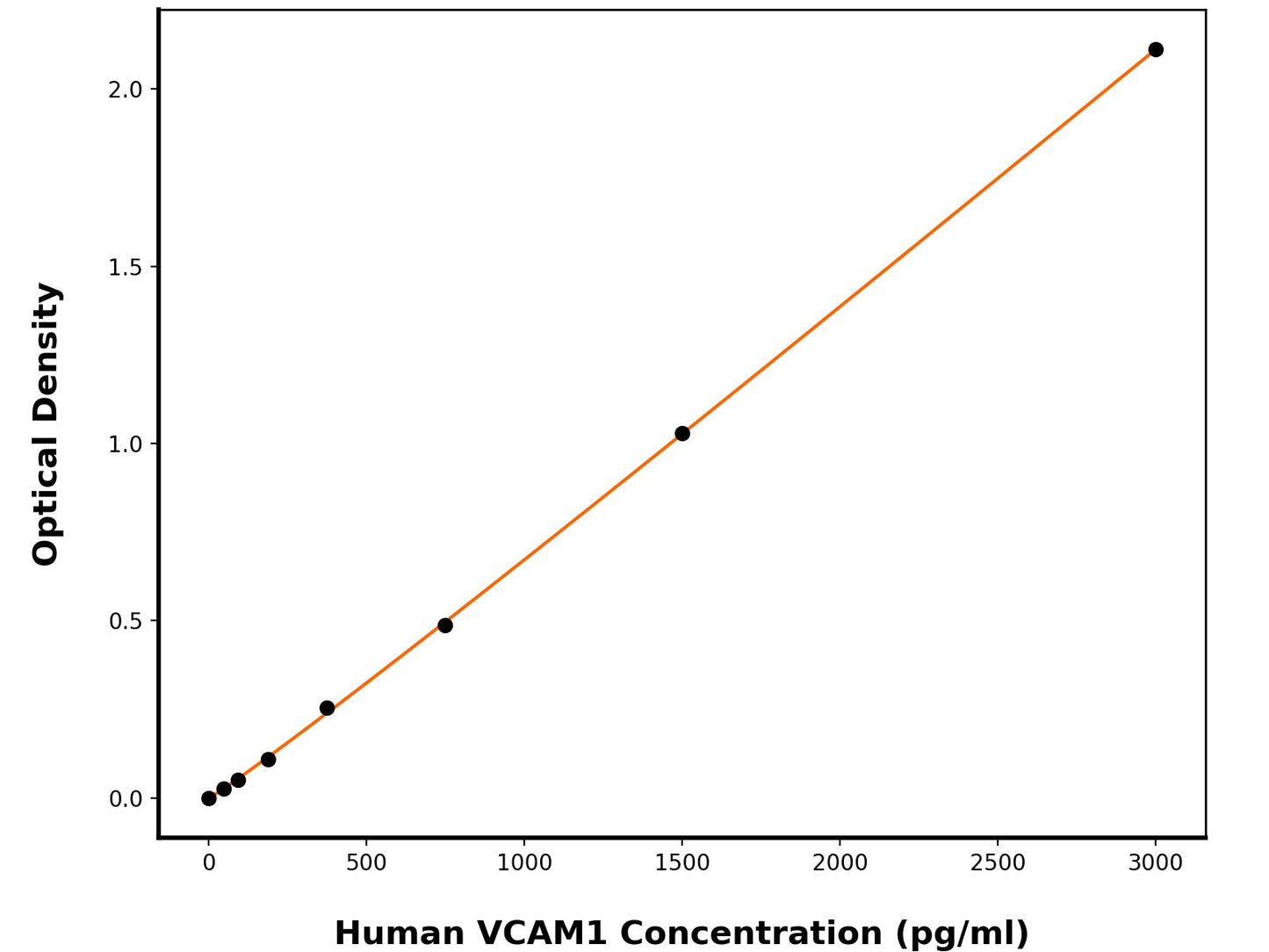1
/
of
1
Human Vascular Cell Adhesion Protein 1 (VCAM1) ELISA Kit
Human Vascular Cell Adhesion Protein 1 (VCAM1) ELISA Kit
This ELISA kit is designed to detect Human Vascular Cell Adhesion Protein 1 (Human VCAM1). The assay plate has been pre-coated with mouse anti-Human VCAM1 monoclonal antibody. When the sample containing VCAM1 is added to the plate, it binds to the antibodies coated on the wells. Then, a horseradish peroxidase conjugated mouse anti-Human VCAM1 Antibody is added to the wells and binds to VCAM1 in the sample. After washing the wells, substrate solutions are added, and the color intensity is directly proportional to the amount of Human VCAM1 present. The reaction is stopped by adding an acidic stop solution, and the absorbance is measured at 450 nm.
Catalog No:
BPE022
Regular price
$624.00 USD
Regular price
$480.00 USD
Sale price
$624.00 USD
Unit price
/
per
2 weeks
Couldn't load pickup availability
Product Details
Species Reactivity
Human
Sensitivity
12.91 pg/mL
Detection Range
46.88-3000 pg/mL
Sample Type
Serum, plasma, cell culture supernates
Incubation(s)
3.5 hour(s)
Research Areas
Cancer, Cardiovascular, Signal Transduction, Stem cells, Microbiology, Neuroscience, Tags and Cell Markers
Background
Vascular cell adhesion molecule 1 (VCAM-1), also known as CD106, is a cell surface sialoglycoprotein belonging to the immunoglobulin superfamily. Two forms of VCAM-1 with either six or seven extracellular Ig-like domains are generated by alternative splicing, with the longer form predominant. VCAM-1 is an endothelial ligand for very late antigen-4 (VLA-4) and α4ß7 integrin expressed on leukocytes, and thus mediates leukocyte-endothelial cell adhesion and signal transduction. VCAM-1 expression is induced on endothelial cells during inflammatory bowel disease, atherosclerosis, allograft rejection, infection, and asthmatic responses. During these responses, VCAM-1 forms a scaffold for leukocyte migration. VCAM-1 also activates signals within endothelial cells resulting in the opening of an "endothelial cell gate" through which leukocytes migrate. VCAM-1 has been identified as a potential anti-inflammatory therapeutic target, the hypothesis being that reduced expression of VCAM-1 will slow the development of atherosclerosis. In addition, VCAM-1-activated signals in endothelial cells are regulated by cytokines indicating that it is important to consider both endothelial cell adhesion molecule expression and function during inflammatory processes. Cancer Immunotherapy Immune Checkpoint Immunotherapy Targeted Therapy
Shipping Condition
Shipped on cold gel packs.
Storage Condition and Shelf Life
This product can be stored at 2-8C.
Analyte
Vascular cell adhesion protein 1
Regulatory Status
For Research Use Only

